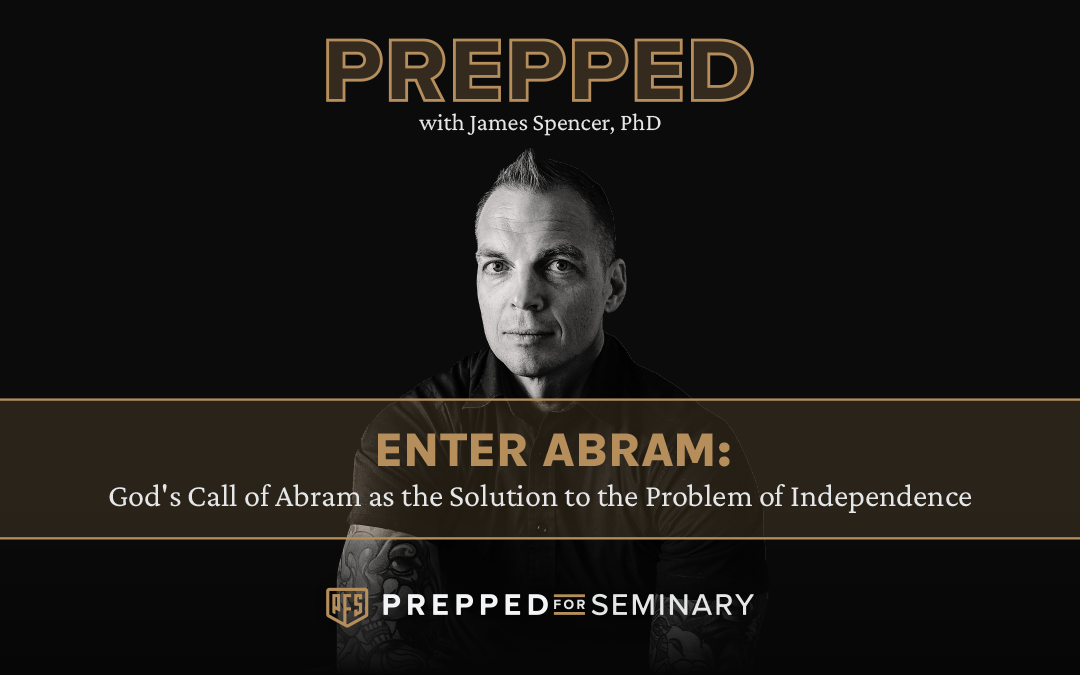Why the Call of Abram Still Speaks to Our Story Today
In a world that rewards independence and celebrates self-made success, Genesis 12 invites us to pause.
Because the kind of faith God calls us to isn’t about building our own legacy. It’s about surrendering to His.
When God called Abram to leave everything familiar—his land, people, identity—He wasn’t just initiating a personal journey. He was launching a covenant story that would shape the world.
And at the center of that story is a radical invitation: Trust Me.
Babel’s Legacy: Self-Sufficiency Over Faith
Genesis 11 tells the story of Babel—a unified humanity working to “make a name” for themselves by building a city and a tower. It’s easy to read this as an act of arrogance. But I think it’s deeper than that.
Babel reveals a subtle and deadly human impulse: the desire to live independently from God. It’s not just pride. It’s self-reliance. The people aren’t shaking their fists at the heavens—they’re simply organizing, planning, and building without God at the center.
They wanted to be remembered. They wanted security. They wanted control. In many ways, they were doing what seems wise in human eyes.
But God saw what they couldn’t: a collective capacity so efficient, so well-organized, it could operate without acknowledging Him. So He scattered them—not out of spite, but to disrupt their illusion of independence.
The Contrast: God’s Call to AbramEnter Genesis 12.
Where Babel builds upward, Abram is called outward. Where Babel tries to make a name for themselves, God promises to make Abram’s name great. It’s not self-promotion—it’s divine provision.
And the key difference? Dependence.
God calls Abram to leave everything that gave him identity and stability. His father’s house. His land. His inheritance. In its place, God offers only this: “Go to the land I will show you.”
There are no maps. No guarantees. No clear path.
Only a promise.
Faith That Moves, Even in the Uncertainty
What kind of faith leaves comfort for the unknown?
The kind of faith that saves.
Abram didn’t just believe God existed—he trusted God enough to obey. That’s the difference. Scripture consistently affirms that saving faith is not a vague belief but a relational trust that leads to action.
“Abraham believed God, and it was credited to him as righteousness.” —Genesis 15:6
“Faith without works is dead.” —James 2:17
Faith, in the biblical sense, isn’t passive. It walks. It leaves. It steps into unfamiliar territory. It submits to God’s authority, even when the road ahead is unclear.
Covenant as Revelation, Not Transaction
I think we sometimes miss something: The covenant God makes with Abram isn’t a contract of instant blessing. It’s a relationship that reveals who God is over time.
The covenant becomes a vehicle of revelation. Through it, Abram and his descendants don’t just receive from God—they come to know God. They learn His character, see His justice, experience His mercy, and understand His purposes.
And just like Abram, we are invited into that kind of relationship—not transactional, but transformational.
Discipleship Is a Journey, Not a Destination
Abram’s faith journey wasn’t perfect. He made mistakes. He doubted. He feared.
But God stayed faithful.
When Abram lied about Sarai in Egypt out of fear, God protected them. When Abram doubted God’s promise of offspring, God reaffirmed it with a covenant. Abram’s missteps didn’t disqualify him—they became moments of deeper revelation.
That’s discipleship.
It’s not a straight line. It’s not always clear. It’s a process of learning to trust, falling, and being lifted again, and growing in obedience.
Faith grows through experience. God is faithful through all of it.
Our Faith, Our Mission
The call of Abram wasn’t just about Abram. It was the beginning of a redemptive mission that stretches across Scripture—and includes us.
“I will bless you… and in you all the families of the earth shall be blessed.” —Genesis 12:2–3
Faith that follows always leads outward. God blessed Abram not to isolate him, but to extend blessing through him. That’s our calling, too.
Discipleship is never just personal—it’s always participatory. We’re invited to join God’s mission to bless, redeem, and restore. Our lives are meant to reflect His promises, power, and purpose.
Reflection Questions
- Where in your life are you tempted to “make a name for yourself” apart from God?
- How is God inviting you to step out in faith—even when the destination is unclear?
- What limitations or uncertainties challenge your trust in God’s provision?
- Are you seeking a transactional relationship with God or a covenantal one rooted in trust?
- How can your faith become a blessing to others this week?
